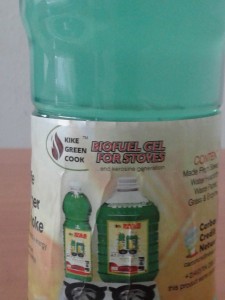 As Spaces for Change’s gender and energy policy campaign trumpets: “Women’s access to clean cooking fuels is a human right!” Consistent with this central theme, the directors of Spaces for Change.S4C and Carbon Credit Network met in Lagos on Thursday, August 6, 2015, to explore collaborative opportunities for deepening women’s access to cleaner, carbon-free cooking technologies which are demonstrably beneficial to maternal health and environmental sustainability. Choice and usage of cooking fuels are primarily determined by availability, accessibility and affordability, with minimal considerations given to the impacts on human health and the environment. The main focus of Spaces for Change’s gender and energy policy campaign is to highlight these impacts, and provide evidence for implementing reforms in ways that close the gaps in access to energy resources and improve socio-economic benefits for women.
As Spaces for Change’s gender and energy policy campaign trumpets: “Women’s access to clean cooking fuels is a human right!” Consistent with this central theme, the directors of Spaces for Change.S4C and Carbon Credit Network met in Lagos on Thursday, August 6, 2015, to explore collaborative opportunities for deepening women’s access to cleaner, carbon-free cooking technologies which are demonstrably beneficial to maternal health and environmental sustainability. Choice and usage of cooking fuels are primarily determined by availability, accessibility and affordability, with minimal considerations given to the impacts on human health and the environment. The main focus of Spaces for Change’s gender and energy policy campaign is to highlight these impacts, and provide evidence for implementing reforms in ways that close the gaps in access to energy resources and improve socio-economic benefits for women.
Stakeholder-mapping is one of the strategies we are using to know who is doing what; what clean energy cooking fuel products are available in the local market; what environmentally-friendly services are being rendered and how accessible they are to the predominantly-female end-users. Helped by the routine stakeholder-mapping exercises, we continuously identify and engage key actors in the energy sector and off-grid markets who are producing greener cooking fuels or rendering gendered services that bear on the relationship between energy price reform and socio- economic development of women.
The KIKE Gel stove and ethanol gel cooking fuel are two innovations of the Carbon Credit Network, a Nigerian initiative working to encourage the adoption of cleaner, carbon free cooking technology by women. CarbonCredit adopts a multi-level marketing scheme, in exchange for transferable, monetary, UN issued, carbon credits. The gel is produced from the bio-digestion of water hyacinth, waste wood and food produce.
Among the various green cookstove gels in the market, the KIKE Gel stands out for a number of reasons. First, in comparison to gasification method of obtaining bio-diesel from waste wood and waste farm produce, the gel’s refining system relies entirely on the enzymatic digestion of waste wood and water hyacinth and so, there is no adverse carbon release into the atmosphere. In terms of accessibility and affordability, the products come in 5litre, 3litre and 0.75litre packs. So that means that regardless of the significant variations in income sizes, women can readily purchase what matches their budget. Comparatively too, KIKE biofuel is estimatedly cheaper than kerosene, though there are attempts to slightly review prices to reflect the current exchange rates. Carbon credit’s practical demonstrations have also shown that the 3litre pack can completely burn out in 11hrs30 minutes compared to 5litres of kerosene which burns out in 10hrs.
Through product ambassadors, which S4C has now become, the product is marketed and delivered to women and other end-users across the country. With this sort of collaboration, the two organizations are even more determined to promote greener kitchens in Nigeria.



